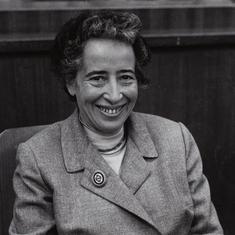There’s little to distinguish a crime committed in 14th-century France seen in The Last Duel from how it would be handled in the present day. A rape is followed by a refusal to believe that it ever occurred and victim-shaming. The survivor endures an insensitive interrogation that casts aspersions on her character. Everybody is rather more worried about her husband’s reputation and honour. It’s happened before, she is told – deal with it and move on.
Ridley Scott’s latest movie may be set in the 1380s, but it taps hard into the current debate that the MeToo movement has sought to expose. Swap the gowns for dresses and the robes for trousers and you have a film that is period only in appearance.
The screenplay, by Nicole Holofcener, Matt Damon and Ben Affleck, is based on Eric Jager’s book non-fiction book The Last Duel: A True Story of Trial by Combat in Medieval France. Damon and Affleck also play crucial roles in the movie – Damon as the aggrieved husband obsessed with social status and Affleck as a pleasure-loving lord who likes to keep his wife pregnant at all times.
The movie is divided into three chapters that, in the manner of Akira Kurosawa’s classic Rashomon, present the differing points of view of the principal characters. The common factor is the inciting incident and its consequence: Marguerite (Jodie Comer) has accused the squire Jacques Le Gris (Adam Driver) of rape. Marguerite’s husband Jean de Carrouges (Matt Damon) challenges Jacques to a duel to death. Count Pierre d’Alencon (Affleck), who governs matters in this part of France, sits in Jacques’s corner.
There is initially some doubt about whether Marguerite is leading Jacques on or merely being polite. Depending on who is telling the story, Jean is either a valiant knight and devoted husband or a callous clod who cares less for Marguerite than for her fat dowry and the heir she is expected to pop out.
Jacques too is either an aesthete who can match Marguerite’s intelligence and grace or a smooth operator bending Pierre’s ear in exchange for wealth, influence and a permanent invitation to the count’s orgies.
There’s no ambiguity about Pierre. “Deny, deny, deny,” the blonde-haired hedonist advises Jacques when the rape accusation becomes public knowledge.
The upending of perceptions about the aristocracy is in keeping with recent revisionist versions of ancient history. The French nobility is portrayed as financially strapped and self-serving. The courtly manners are mostly a sham, while the endearment “My love” gains an increasingly sinister hue.
However, the writing isn’t sharp or smooth enough to sheathe its surprises or gradually reveal its stated goal of interpreting current events through the prism of history. Thick and doubly underlined parallels are drawn between the distant past and the present to the extent that we get a barely accurate picture of what gender justice and the position of noblewomen were like centuries ago.
Each new version of the build-up to the rape and its aftermath clears, rather than muddies, the waters. Subjective memory, the unreliability of eyewitness accounts, and the slipperiness of truth – all central concerns of Rashomon – deemed no longer viable, The Last Duel opts for a cleaner version of events.
Although Marguerite’s story comes at the end of the three chapters, the groundwork for her character arc is laid out early on. A movie that was more mindful of the values and norms of the 1380s and less insistent on portraying Marguerite as the predecessor of the MeToo accusers would have served her cause better.
Ridley Scott’s well-proven skill with world building and solid performances, especially by the key male characters, guide the movie through blocks of flat writing and blunt scene setting. Matt Damon as the visibly older and creaky husband of a young and attractive wife, Adam Driver as the possibly duplicitous squire, and Ben Affleck as the medieval avatar of the crony capitalist are all more impactful than Jodie Comer’s tentative and underserved victim.
The Last Duel’s denouement restores the imbalance between intent and execution. While the duel has a clear winner, a final note of much-needed disquiet crystallises the film’s attempt to create a bridge between what was and what is.










